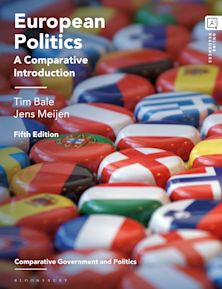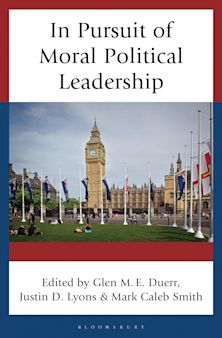- Home
- ACADEMIC
- Politics & International Relations
- Comparative Politics
- The Political Theory of a Compound Republic
The Political Theory of a Compound Republic
Designing the American Experiment
The Political Theory of a Compound Republic
Designing the American Experiment
This product is usually dispatched within 2-4 weeks
- Delivery and returns info
-
Flat rate of $10.00 for shipping anywhere in Australia
You must sign in to add this item to your wishlist. Please sign in or create an account
Description
The Political Theory of a Compound Republic examines the foundation of American constitutional design expressed in theFederalist. Through meticulous textual analysis, the logical principles of federalism-the extended and compound republic envisioned by James Madison and Alexander Hamilton-are revealed as thirteen propositions broadly applicable to any effort to design the institutions of a self-governing polity. The final chapters, expanded and revised by Vincent Ostrom and Barbara Allen, turn to the American experiment in constitutional choice at the threshold of the twenty-first century. In this revised edition, Ostrom and Allen consider the continuing story of federal institutional development by focusing on two current concerns: the "imperial presidency" and the ideal of universal human rights.
This third, revised and expanded edition of The Political Theory of a Compound Republic continues to be of interest to scholars of federalism, institutional analysis and development, political economy and public choice, and students of the American founding. It is also useful in undergraduate and graduate courses on American government and political thought.
Table of Contents
Chapter 2 Preface
Chapter 3 Two Different Approaches to the Design of Public Order
Chapter 4 Chapter 1. Introduction: Seeking to Understand Principles of Governance
Part 5 Part I. A Political Theory of a Compound Republic
Chapter 6 Chapter 2. Point of Departure, Basic Assumptions, and First Principles
Chapter 7 Chapter 3. Constitutional Choice
Chapter 8 Chapter 4. Some Rudiments of Political Design
Chapter 9 Chapter 5. A Republican Remedy for the Republican Disease
Chapter 10 Chapter 6. Federal Structures and Their Implications
Chapter 11 Chapter 7. The Distribution of Authority in the Organization of the National Government
Part 12 Part II. More Than Two Centuries Later: Reflections on the American Experiments in Constitutional Choice
Chapter 13 Chapter 8. Constitutional Choice and Constitutional Development
Chapter 14 Chapter 9. The Twentieth-Century Break withThe Federalist Tradition
Chapter 15 Chapter 10. The Constitutional Level of Analysis: A Challenge
Product details
| Published | 23 Oct 2007 |
|---|---|
| Format | Paperback |
| Edition | 3rd |
| Extent | 316 |
| ISBN | 9780739121207 |
| Imprint | Lexington Books |
| Dimensions | 234 x 156 mm |
| Publisher | Bloomsbury Publishing |
About the contributors
Reviews
-
Vincent Ostrom is well known as a profound and philosophical student of American government. This revised version of his basic book will be welcomed by almost everyone. People who are already familiar with his work and people who are not, but who should be will learn a good deal from reading this improved version. Not only will they learn, but they will probably enjoy it. It is not only profound but also very well written.
Gordon Tullock, George Mason University
-
Those who teach and write about the founding of the United State have generally come to regard the Federalist Papers as the best commentary for understanding the meaning and intent underlying the U.S. Constitution. I suspect that, over time, many of those same people will come to regard Vincent Ostrom's The Political Theory of a Compound Republic as the best guide for understanding the coherent theory that underlies and ties together the Federalist Papers. It is already one of the four of five indispensible works in publc choice theory along with such works as James Buchanan and Gordon Tullock's The Calculus of Consent. This new revision by Ostrom and Allen will also, I predict, become a classic in public choice theory.
Donald S. Lutz, University of Houston
-
This update of a classic exposition of the Federalist and its contemporary relevance is a welcome relief from narrow notions of administrative federalism and hierarchical intergovernmental relations.Vincent Ostrom is a preeminent champion of multiple centers of power and overlapping jurisdictions as constituting key elements of a republic of liberty and constitutional choice for democratic citizens.
John Kincaid, Lafayette College


































